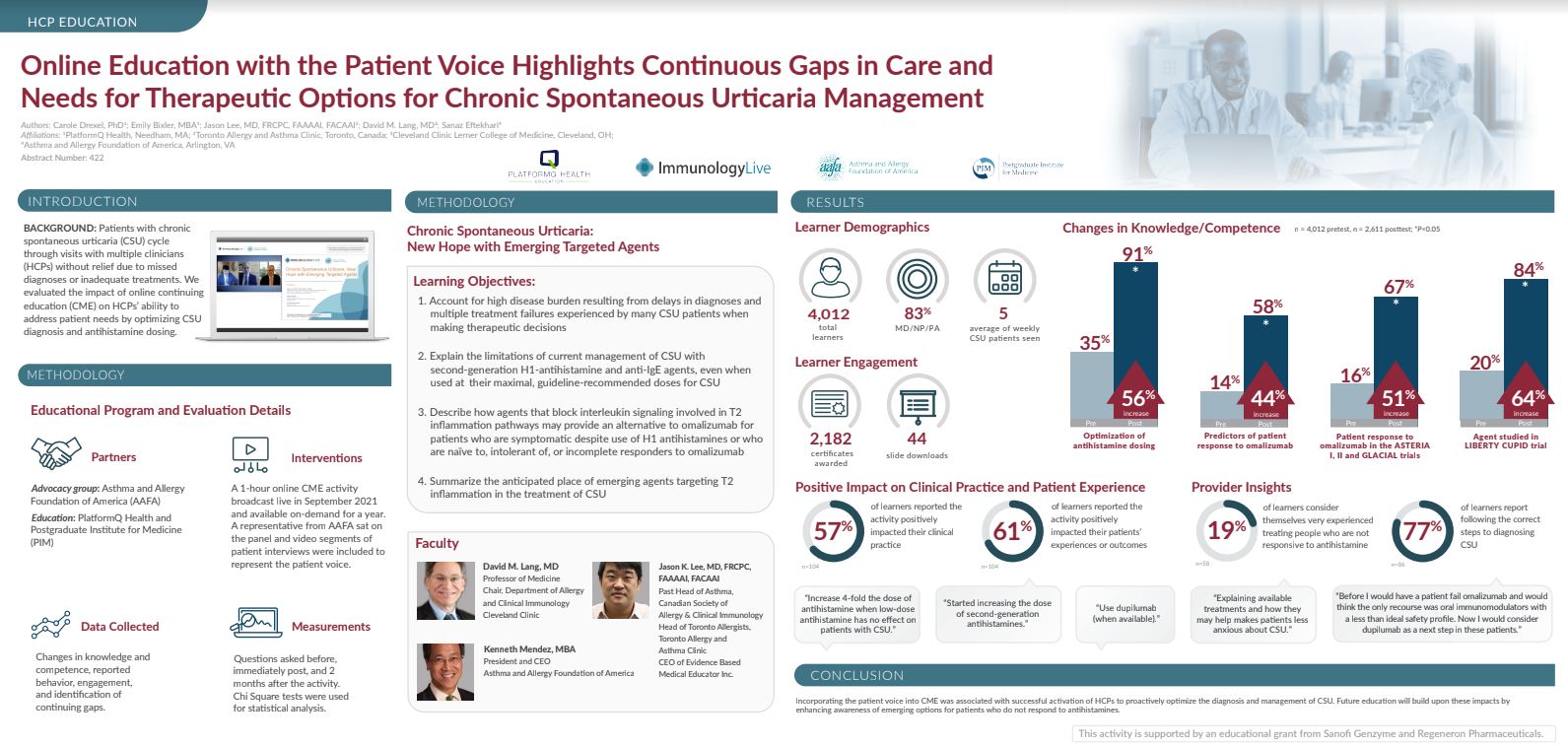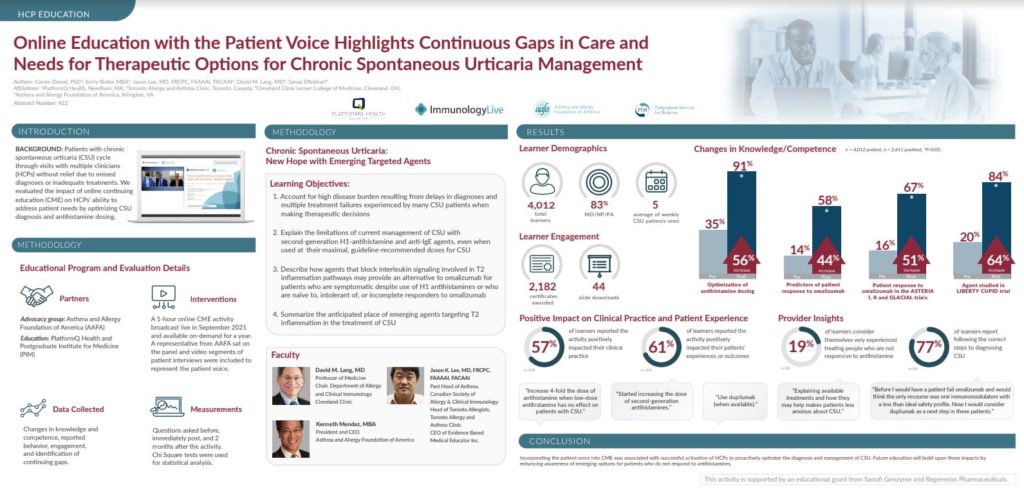Patients with chronic spontaneous urticaria (CSU) often suffer with unresolved symptoms, despite numerous visits to different healthcare providers. In a recent poster presented at the 2023 American Academy of Allergy, Asthma, and Immunology, PlatformQ Health evaluated the impact of digital continuing medical education (CME) on optimizing diagnosis as well as antihistamine dosing.
The Asthma and Allergy Foundation of America worked alongside PlatformQ Health to produce a one-hour CME activity that was broadcast live in September 2021 and available on demand for a year afterwards. The program features a live panel of experts, including the chair of Cleveland Clinic’s Allergy and Clinical Immunology department, past head of the Asth, Canadian Society of Allergy & Clinical Immunology and CEO of Evidence Based Medical Educator, Inc., and the president and CEO of the Asthma and Allergy Foundation of America, as well as videos highlighting patients’ personal experiences.
Learning objectives included gaining an understanding of:
- The high disease burden resulting from diagnosis delays and treatment failures
- Limitations of current management of CSU with second-generation H1-antihistamine and anti-iGE agents
- Agents that block interleukin signaling involved in T2 inflammation pathways may provide an alternative to omalizumab for patients whose symptoms are not managed H1 antihistamines or for whom omalizumab is not an option

Click here to download full poster.
4,012 learners (83% of whom were MDs, NPs, or PAs) participated in the program. Pre- and post-session surveys were conducted to assess improvements in competency as a result of the program. The outcomes were very positive, with 91% of learners having improved understanding of optimization of antihistamine dosing, 58% improvement in understanding predictors of patient response to omalizumab, 67% improvement in understanding patients’ response to omalizumab in recent trials, and 84% improvements in understanding agents studied in the LIBERTY CUPID trial.
Incorporating patient voice into the CME program was associated with successful efforts to help HCPs proactively optimize disease diagnosis and treatment. Further education would be beneficial to further enhance awareness of emerging treatment options for patients who do not respond to antihistamines.
Other Resources:
- Check out our feature in Physicians Weekly
- Read more about our CME Programs in Partnership with AAFA



